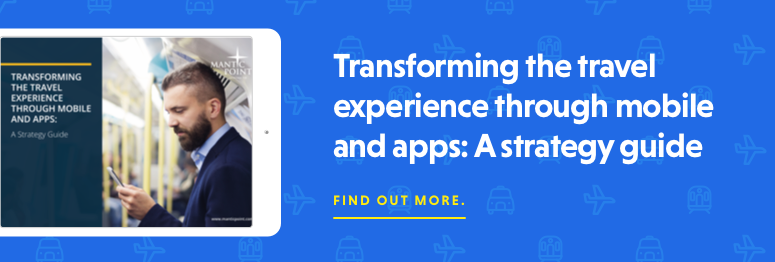How Millennials are Reshaping the Travel Industry
Posted by Mike Atherton on 01 March, 2016

Like so much of the modern world, the landscape of the corporate travel sector is being hugely impacted in a variety of ways by “Generation Y” – the “Millennial” generation.
“The Millennial generation, defined as those currently between the ages of 16 and 34, is more interested than older generations in traveling abroad as much as possible – by a 23-percentage-point margin. The United Nations estimates that 20 percent of all international tourists, or nearly 200 million travelers, are young people, and that this demographic generates more than $180 billion in annual tourism revenue, an increase of nearly 30 percent since 2007.” – The Atlantic, “How Millennials Are Changing Travel”
Along with the evolution of technology millennial behaviour is the largest instigator of change in the industry. They travel more than any other demographic and are leading the charge in such things as the rise of the sharing economy and the continued focus on mobile solutions.
According to David Chapman of the World Youth Student and Educational Travel Convention (WYSE), “These young travellers have accounted for at least 20% of international arrivals since the turn of the century…likely to approach 25% before long.”
The Sharing Economy
Perhaps the most obvious millennial-led shift, the irrepressible rise of the sharing economy is impossible to ignore.
Five years ago, few people had heard of Airbnb or Uber. Now, these brands are household names and are two of the most successful start-ups ever, with private valuations above $25billion and $62 billion, respectively.
Sharing economy service providers are keen to capitalise on their current glowing fortune, and many are now focusing their sites on the corporate market. Airbnb, for instance, has launched a platform offering 500,000 rooms, across 190 countries, targeted at business. Uber, meanwhile, has its own business branch of its booking service.
There can be a tendency to view millennials as fickle, but the continued success of the likes of Uber and Airbnb suggest this is far from the case. More likely is the assertion that millennials are loyal to those brands that deliver the experiences they want.
The Rise of the Business Holiday
Whether you call it “bleisure” or the “bizcation”, extending a business trip into a leisure stay is increasingly popular.
With a lower percentage having responsibilities at home, many millennials can afford to add extra time to their business trips, and a 2014 study by Expedia found that millennials are 62% more likely than older employees to extend a business trip into a holiday.
Others may turn their business trip into a “bleisure” holiday by making the most of any downtime, using it for leisure activities or simply seeking local culture.
Turning a business trip into a personal adventure helps avoid the burnout that can be associated with frequent travel, and enterprises may find that their millennial travellers are more motivated and enthusiastic about their trips.
Millennials are also more likely to spend as if they are on holiday during a business trip. Expedia also found that 37% of 18-30 year old traveller spend more on room service when it is paid for by their company (within the 46-65 business traveller demographic the figure is just 21%).
The Importance of Mobile
Apps and mobile compatibility are now essential aspects of travel itinerary management, and mobile is absolutely key in communicating with millennials.
According to Expedia, 49% of millennials use smartphones when planning trips and 35% book journeys on them, and these figures are sure to rise – the WYSE survey shows a twofold increase year-on-year in mobile bookings.
A smartphone is a constant companion, and millennials expect responsive websites that perform perfectly on mobiles and other devices, instant email confirmation, and digital tickets. They may use their phones to research and book activities, change reservations, and even work.
Millennials are also strongly influenced by online sources such as review sites, blogs and social media. 80% percent of those surveyed by WYSE feel travel reviews have a strong influence on their decisions, and 56% like to post online reviews after their own trips.
With all this in mind, it’s easy to understand the rise of mobile customer service contact centres. The businesses that do best in the age of the millennial will be those that recognise the shifting customer landscape and meet people where they are – on their phones.
As well as being convenient for users, such apps offer value for the travel company too. The app is usually the starting point in a process that will lead to a call centre agent, and, with info gathered in the app, the company can learn a lot about their customers from the outset, helping to filter cases, thereby reducing call volume, reduce call times and increase customer satisfaction.
The Challenges and the Opportunities
There’s no doubt that millennials are changing the way we travel and it’s up to today’s OTAs and TMCs to grasp the opportunities and navigate the challenges.
Millennials may be budget-conscious but they are not cheap. “The 227 million young people that travelled in 2014 spent nearly $250 billion on travel,” Chapman asserts. “They will spend where they need to in order to curate that once-in-a-lifetime travel experience.”
Challenges
One of the greatest challenges of getting to grips with Millennials’ travel preferences is managing travel risk within sharing economy choices. For enterprises and TMCs, keeping travellers safe is a key priority, and the lack of visibility that comes with off-programme travel bookings can cause issues if and when a traveller needs support. Businesses need to examine their travel policies and assess how feasible it is to include Uber and Airbnb. Convenience, cost and traveller satisfaction will have to be balanced against duty of care.
In 2015, TMC Concur teamed up with Uber and Airbnb. This partnership offers business travellers easier ways to book travel and complete their expenses, while giving enterprises and travel managers greater accuracy and visibility.
Of course, millennials’ willingness to spend more (particularly on expenses) may also be a concern to businesses. However, it should be noted that this may well be balanced by a greater willingness to shop around – millennials tend to look for those products and experiences that they feel offer the most value, rather than just opting for the most expensive option. This may often translate into money-saving opportunities, for instance trying local street-food for a meal rather than a traditional and expensive restaurant.
Opportunities
Millennials should be a TMC’s best friend – on average they travel 4.2 times per year, compared to 2.9 and 3.2 times for older generations, according to a survey by HVS Global Hospitality Services.
Millennials’ love of social media may also be useful to businesses, particularly TMCs. Willingness to share on social networks means that it’s never been easier to gather feedback and to respond to your customers.
Generation Y may provide enhanced merchandising opportunities, so long as you deliver the right offers in the right way. According to the WYSE, millennials check their phones, on average, every five minutes, making them the perfect customers for mobile merchandising. Meanwhile, a Boston Consulting Group (BCG) study found millennial travellers 60% more likely to buy flight upgrades such as premium in-flight entertainment or extra legroom when during business travel.
Millennials tend to less interested in souvenirs and more interested in memorable experiences; if you can tailor your merchandising to capture their interest and imaginations, then you should find great success with generation Y customers.
“I think it’s safe to say that younger travellers are the trailblazers of travel. Their behaviors and preferences shape the products and services that the travel industry develops, many of which are later adopted by mainstream travellers. This is what I mean when I say that every traveller is a millennial traveller.” – David Chapman WYSE
For millennial travellers, a mobile travel itinerary app is a must-have. To ensure your TMC is providing an experience that meets and exceeds traveller expectations, download our guide to making the most of mobile.


